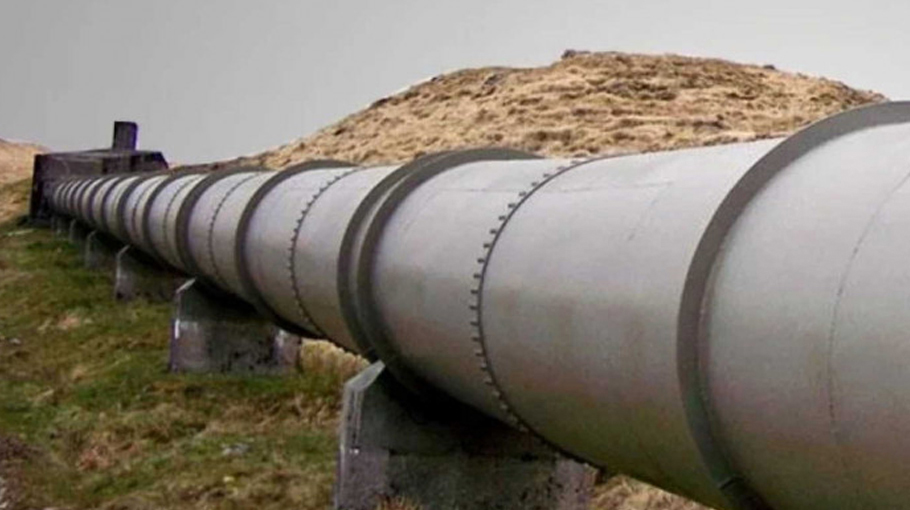BPC to inaugurate ‘Bangladesh-India Pipeline Project’ this year

To reduce fuel supply and transportation costs, the inauguration of fuel oil import works through the pipeline from Siliguri district of India may take place this year itself. Meghna Petroleum Limited (MPL) and India's Numaligarh Refinery Limited (NRL) are jointly implementing the project on behalf of BPC.
50 percent of the construction work of the new oil storage tank has been completed, the remaining work may be inaugurated even if the 'Bangladesh-India Pipeline Project' is not completed. However, the construction of the new tank may be completed this year, said BPC. Installation of tanks may be delayed due to inability to import construction materials. In that case, the operation will continue by using old tanks for oil storage.
State Minister for Power, Energy and Mineral Resources Nasrul Hamid said that the pipeline will be inaugurated next June. Under this project, six tanks of 5,690 liter capacity and two tanks of 3,000 liter capacity are to be constructed on the land of receipt terminal at Parbatipur. But there is uncertainty about completing the construction of these tanks by June.
According to BPC sources, the India-Bangladesh Friendship Pipeline project is being implemented at a cost of Tk 520 crore. Out of this, Government of India will contribute Rs 303 crore and BPC will give Tk 217 crore. The project implementation period is from January 2020 to June 2022. If the project is implemented, it will enable uninterrupted supply of fuel oil to the northern region, which will boost agriculture and trade. Overall, it will play a role in improving the economic standard of living of the people of this region. About 147 acres of land has to be acquired for the pipeline in the Bangladesh part. Among the three districts along the pipeline route, 121 acres in Panchagarh, 52 acres in Dinajpur and 14 acres in Nilphamari have to be acquired. 82 acres in Panchagarh, 33 acres in Dinajpur and 9 acres in Nilphamari.
The pipeline crosses multiple rivers, roads and railways on its way from Banglabandha to Parbatipur. 6 points of four rivers under BIWT, 3 points under Railways, 4 points under Roads and highways and 28 points under Directorate of Local Government Engineering have been crossed. Government of India will finance Rs 303 crore under 'Grand in Aid' program to implement the project. Bangladesh will spend Tk 306 crores.
Project Director Md. Tipu Sultan said, as new tanks are not being built in the receipt terminal area, we have taken the initiative to store fuel oil in the old tankers for the time being. Project work is in progress. The pipeline laying work is nearing completion. Now work is going on to connect the riverside part of the project. It is expected that the work will be completed within the duration of the project. Efforts are underway to complete the construction of the tank before the inauguration. If not finished, oil will be kept in old tankers.''
The project was proposed by India's state-owned company 'Numaligarh Refinery Limited' (LRL) in December 2012. Several meetings were held between the two countries regarding this proposal. After that, fuel oil from India was established between the two countries
Bangladesh government decided to import diesel in particular. According to the proposal, the pipeline (IBFPL) will be constructed from Siliguri Terminal of LRL to Parbatipur Depot in Bangladesh under the 'Improvement of Electricity and Energy Supply Act-2010'.
On April 9, 2018, Bangladesh and India signed a memorandum of understanding. On September 18 of that year, the Prime Ministers of the two countries laid the foundation stone of the project through video conference. Two years after the foundation stone was laid, the ground work officially began on December 3, 2020. Work is scheduled to be completed in June 2022. But it's not over yet. Land acquisition process is still pending in some parts. Construction work is ongoing on the main facility stock tanker.
According to BPC sources, out of 131 km, about 126 km of pipeline has fallen in Bangladesh. This pipeline passes through Panchagarh, Dinajpur and Nilphamari.
Oil will be imported through the pipeline for 15 years. It is planned to import 2 lakh tonnes of oil in the first three years, 3 lakh tonnes in the next three years, 5 lakh tonnes in the next four years, and 10 lakh tonnes in the remaining five years. If the pipeline project is implemented, it will bring fuel oil to the Parbatipur railhead depot. It will take a few hours. From here, oil will be supplied to various districts in the north. Transportation costs and system losses will be greatly reduced. The present capacity of Parbatipur railhead depot will be increased from 20 thousand tonnes to 50 thousand tonnes. Currently imported fuel oil takes about a month to reach Parbatipur. Crude fuel oil imports cost as much as $3 per barrel in transportation. The oil is refined in Chattogram and sent by road and sea to different parts of the country. The cost of transporting oil from Chittagong to various districts in the north by road is $4-5 per barrel. As a result, the shipping costs total $7-8. And the cost of transporting refined oil from India to the northern part of the country by pipeline will be as 5.5 dollars.




